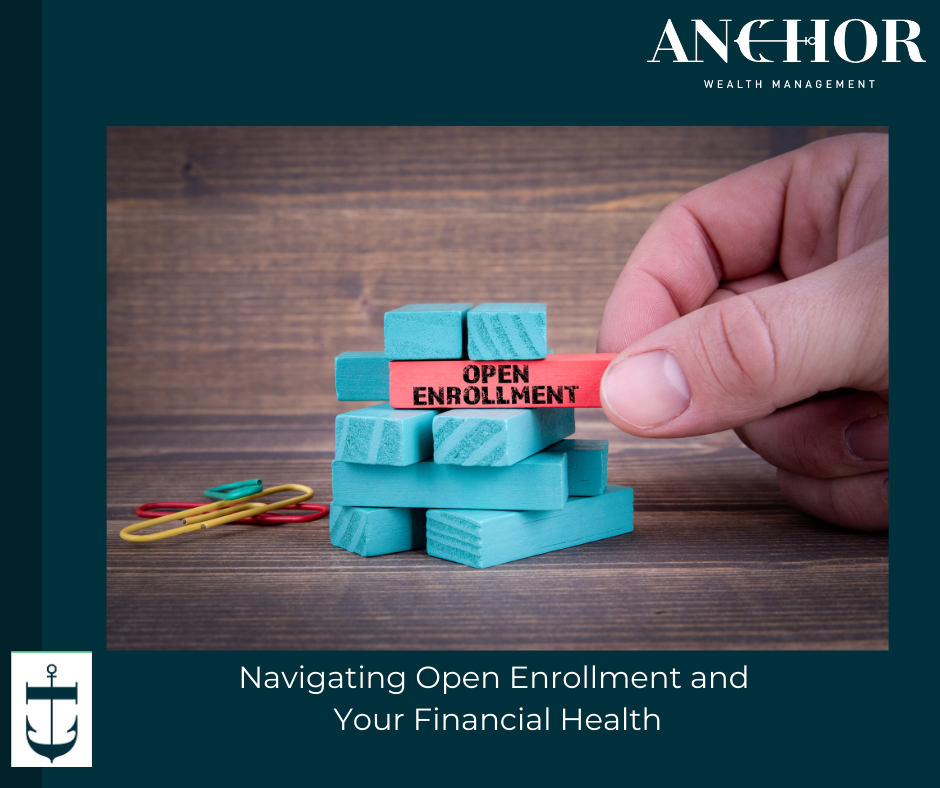
Open Enrollment is an annual period that carries substantial weight in the realm of personal finance and healthcare. During this time, individuals can make critical decisions that impact their financial health for the entire year. Discover tips below on what factors to consider, how to make the most of the open enrollment opportunity and how it relates to your finances.
Why Open Enrollment Matters
Open Enrollment is the designated time each year when individuals can sign up for or make changes to their healthcare plans. It is a crucial window of opportunity that allows you to select the right coverage and make essential financial decisions that could have a profound impact on your financial well-being. Understanding Open Enrollment and taking full advantage of it is vital for the following reasons:
1. Financial Impact: Your choice of healthcare plan directly affects your financial health. The premiums you pay, the deductibles you owe, and the coverage you receive all play a significant role in your annual budget.
2. Tax Implications: Health savings accounts (HSAs) and flexible spending accounts (FSAs) are tied to healthcare plans. Maximizing contributions to these accounts can provide tax benefits and help you save on medical expenses.
3. Health Changes: Open Enrollment is your chance to adjust your coverage if you’ve experienced significant health changes such as new medication, more frequent office visits, or any expected changes in the upcoming year.
Open Enrollment Period
The exact timing of Open Enrollment can vary by employer or insurance provider, but for most people, it takes place in the fall. The federal marketplace (Affordable Care Act) typically opens from November 1 to December 15. It’s crucial to be aware of these dates and check with your employer or insurance provider for specific deadlines. If you miss the Open Enrollment window, you may have limited options until the next annual enrollment period.
What Can You Change During Open Enrollment?
Here are some key changes you can make during your insurance plan’s Open Enrollment period:
1. Change or Renew Plans: You can select a new health insurance plan, or if you’re satisfied with your existing plan, simply renew it for the coming year.
2. Add or Remove Dependents: If your family situation has changed, you can update your plan to include or remove dependents.
3. Adjust Contributions: You can increase or decrease contributions to accounts like HSAs and FSAs, which can affect your tax liability and ability to save for medical expenses.
4. Choose a Different Provider: You can select a different healthcare provider if you are not satisfied with your current one.
What to Consider During Open Enrollment
Making the most of Open Enrollment involves careful consideration. Here are some factors to think about when evaluating your options:
1. Your Health Needs: Consider your current health and any expected changes in your health care needs in the coming year. A plan with lower premiums may be suitable for those who are generally healthy, while those with chronic conditions may benefit from a more comprehensive plan.
2. Network Coverage: Assess whether your preferred healthcare providers and specialists are in-network. Going out-of-network can result in higher costs.
3. Budget Constraints: Balance the monthly premium cost with the potential out-of-pocket expenses. High-deductible plans often have lower premiums but require you to pay more for medical services.
4. Prescription Coverage: If you take regular medications, ensure your plan covers them at a reasonable cost.
Open Enrollment is an invaluable opportunity to secure your financial well-being and ensure that you have the right healthcare coverage for your needs. We recommend meeting with your company’s human resource specialist or with a financial advisor (like Anchor Wealth Management) to understand and evaluate your options during Open Enrollment and the impact they may have on your financial health.
Andrew Burgess, Operations Manager
